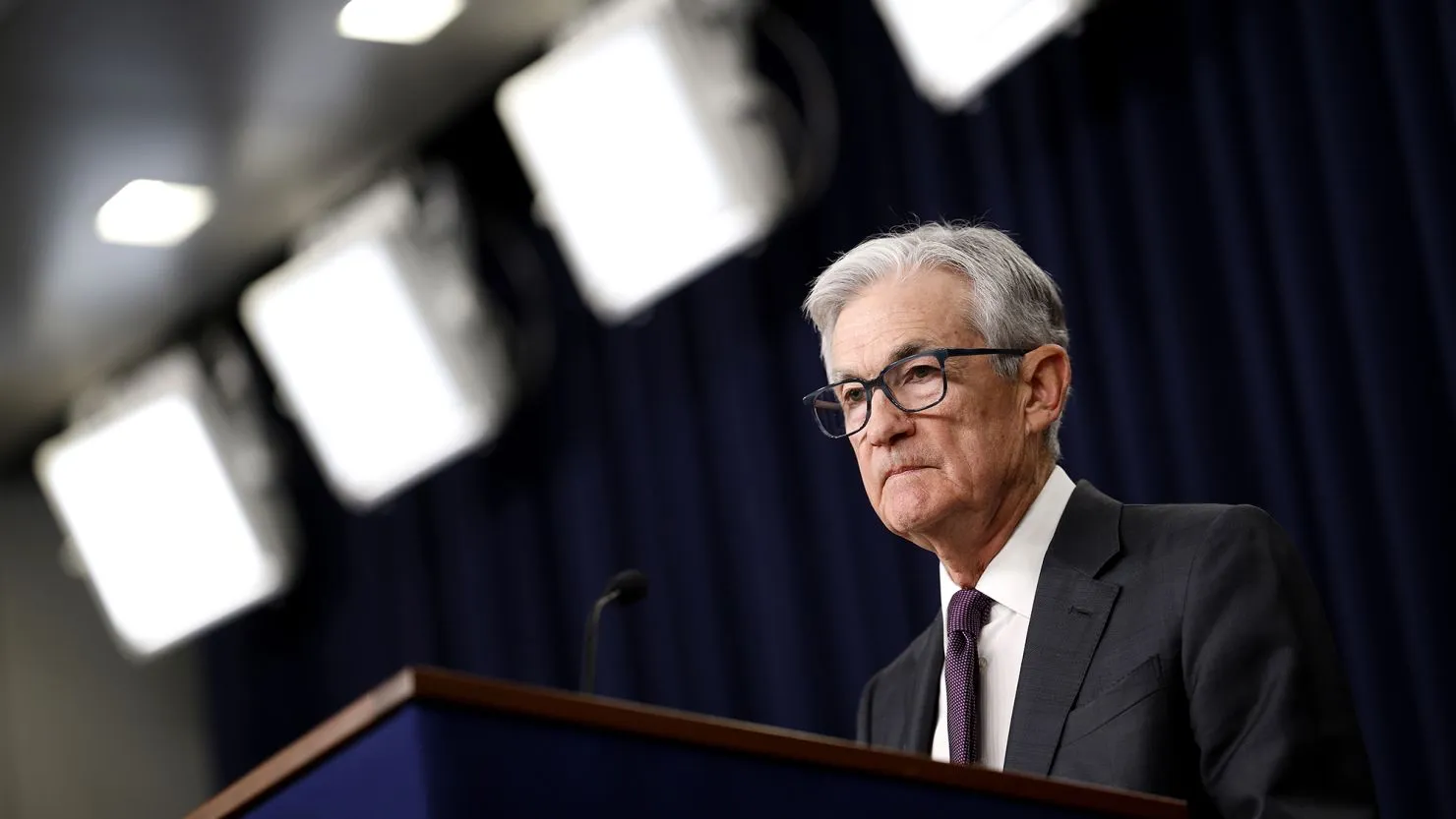Introduction
In an alarming address that reverberated through the corridors of Wall Street and policymakers alike, Federal Reserve Chair Jerome Powell delivered a stark warning about the economic consequences of tariffs. As the tension between inflation control and economic growth intensifies, Powell’s statements shed light on the profound impact that tariffs could have on the U.S. economy and financial markets. This article examines Powell’s remarks, the implications of tariffs, and how they intertwine with the Fed’s dual mandate of fostering employment and stabilizing prices.
The Context of Powell’s Warning
Powell’s comments come at a time of heightened uncertainty in global markets, exacerbated by the ongoing trade wars initiated during the Trump administration. In recent months, the imposition of tariffs on a range of imports has raised concerns among economists, investors, and consumers. Powell’s recognition of tariffs as a potential threat to economic stability underlines the broader challenges that U.S. monetary policy faces.
Understanding Tariffs and Their Economic Implications
Tariffs are taxes imposed on imported goods, often intended to protect domestic industries. However, they can also lead to higher prices for consumers and increased costs for businesses that rely on foreign goods. As Powell indicated, the repercussions of tariffs can lead to higher inflation, which poses a significant challenge for the Federal Reserve as it attempts to manage price levels while stimulating economic growth.
Inflation Spiral
Powell’s acknowledgment that tariffs could exacerbate inflation reflects a growing concern among economists. The Federal Reserve closely monitors inflation metrics—such as the Consumer Price Index (CPI) and the Producer Price Index (PPI)—as part of its mandate. When tariffs inflate the prices of imported goods, the cost can ripple through the economy, affecting everything from consumer purchases to business investments.
The Fed’s Dual Mandate
The Federal Reserve’s primary goals are maximizing employment and maintaining stable prices. Powell’s warning signifies a delicate balancing act: on one hand, the Fed must counteract rising inflation, while on the other, it must ensure that excessive tightening of monetary policy does not stifle growth. History shows that economic contractions often result when central banks respond too aggressively to inflation, leading to unwanted job losses and economic downturns.
Market Reactions: A Slide in U.S. Stocks
Following Powell’s remarks, U.S. stocks declined, signaling investor uneasiness about the potential implications of tariffs. The volatility of the stock market often reflects investor sentiment, and any sign of uncertainty can lead to fluctuations.
The Tech Sector Hits Hard
Tech stocks were particularly affected by the downward trend in the market. Companies like Apple and Microsoft, which rely heavily on global supply chains and foreign manufacture, felt the negative impact of Powell’s comments. Investors worry that increased tariffs could lead to decreased consumer spending, as products become more expensive, especially in the technology sector.
Broader Economic Impact
The decline in U.S. stocks is not only a reflection of investor sentiment regarding inflated prices for goods, but it also points to concerns about overall economic growth. Should business investments slow due to increased costs, the economy could face a slowdown that triggers a recession—something that nobody in the current economic climate desires.
The Global Landscape: Tariffs Beyond U.S. Borders
The implications of tariffs are not confined to the United States. Global markets are interlinked, and trade policies in one nation significantly affect economies worldwide. In particular, the trade relationships with key partners such as China can have significant repercussions.
China-U.S. Trade Relations
China has been at the epicenter of the trade war, with tariffs levied on hundreds of billions of dollars’ worth of goods. Powell’s warning touches on the fact that mismanaged trade relations with China not only impact U.S. inflation but ripple back into China and beyond. If tariffs result in increasing prices and slowing economic activity in the U.S., it could lead to retaliatory measures from other countries, further complicating the global trade scenario.
The Path Forward: Fed’s Strategy in Uncertain Times
As Powell and the Fed navigate these turbulent waters, they face mounting pressure to formulate a response that adequately addresses both inflation and economic growth. The current situation calls for a careful evaluation of monetary policy tools and measures that can maintain economic stability.
Interest Rate Adjustments
One area where the Fed has the capacity to influence the economy is through interest rate adjustments. If inflation begins to spiral upwards, the Fed may consider increasing rates to cool off the economy. However, this must be executed with utmost caution, as raising rates can lead to decreased consumer and business spending, further risking economic stagnation.
Communicating with Clarity
Transparency and communication will also play a crucial role in navigating the uncertain economic landscape. Powell has committed to engaging with the public and investors to convey the Fed’s assessment of the economy in a clear manner. Establishing trust and clarity can help alleviate some of the anxiety in financial markets and foster consumer confidence.
Looking Ahead: The Future of Tariffs and Economic Policy
As the global economy continues to grapple with the aftershocks of the pandemic and evolving trade relationships, the future of tariffs remains an open question. Policymakers must consider whether to maintain current tariffs, remove them to promote growth, or penetrate deeper into negotiations with trading partners like China.
The Impact on Consumers
For average consumers, the impact of tariffs is palpable. If prices increase due to tariffs, families are likely to adjust their spending habits, which can have cascading effects on retail and discretionary spending. As consumers pull back, businesses may tighten budgets, leading to broader economic implications.
Final Thoughts
Jerome Powell’s stark warning has illuminated a critical issue facing the U.S. economy: the potential economic consequences of tariffs and their intricate relationship with inflation and growth. As the Federal Reserve grapples with these challenges, a prudent approach equitable to all facets of the economy will be essential. It remains to be seen how the economic landscape will evolve, but one thing is certain: in these uncertain times, every decision from the Fed will be closely watched and analyzed.







